Daily Skin Care Routine – 5 Simple Steps For Every Skin Type
Take your skin health up a notch with the right routine suitable for your skin.
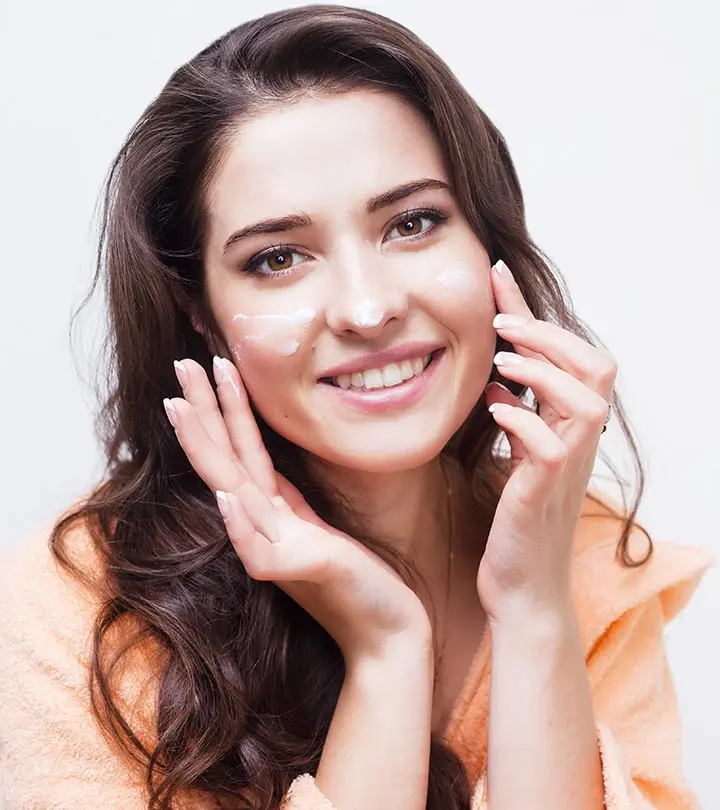
Image: Shutterstock
Healthy and glowing skin is not all about having great genes. Your lifestyle habits and daily skin care routine have a crucial impact on your skin health and appearance. And building a great skin care routine does not start from getting the best products out there. It starts from understanding your skin, learning how to care for and protect it, and meeting its requirements.
Reading all the opinions, going through product reviews, and watching videos to set up a basic routine may feel confusing. However, skin care is all about self-care and your personal choices. Scroll through this article to understand what you need to do to set up a basic daily skin care routine as per your skin type.
How To Determine Your Skin Type

Before you start following a skincare routine, it is critical to determine your skin type. If you are confused about your skin type, here is a simple way to determine it:
- Normal Skin: This skin type feels balanced. It is neither too oily nor too dry. Also, it is not excessively sensitive and does not react to anything applied to it.
- Oily Skin: If your T-zone is shiny and greasy, you may have oily skin. Oily skin tends to have larger sebaceous glandsi Microscopic glands that open on hair follicles and secrete an oily or waxy substance called sebum to prevent dryness in the skin. that produce excess oil. It is also acne-prone.
- Dry Skin: If your skin feels tight and itchy, especially after washing, you have dry skin. This type of skin feels patchy and itchy. It is also prone to premature aging.
- Combination Skin: If your T-zone is oily and the cheeks and rest of the face are dry, you have combination skin.
- Sensitive Skin: If your skin reacts to any product and gets irritated easily (especially after sun exposure), you have sensitive skin.
An online survey was conducted on 412 women living in Poland to get insights into their facial skincare during the COVID‐19 pandemic. It revealed that only 30% of the responders practiced skincare before the pandemic whereas during the pandemic the number rose to 50% (cleansing, exfoliating, moisturizing). 90% of the women observed improvement in their skin condition.
No matter what your skin type is, using your skin care products in the right order is crucial. Learn more in the next section.
Key Takeaways
- A combination skin type has an oily t-zone and dry face while a sensitive skin type easily reacts to chemicals and sun exposure.
- Cleansing, toning, and moisturizing are the basic foundations of your morning and night skin care routine.
- Proper hydration, adequate sleep, and sunscreen with a minimum SPF of 30 can prevent premature aging and improve your overall skin health.
- A balanced diet and regular exercise promote healthy and glowing skin.
Why The Order Of Your Skin Care Routine Matters
Following an order for your skin care routine is important to maximize the effectiveness of your products and achieve the desired results. The proper sequence ensures each product penetrates the skin optimally and their active ingredients work synergistically.
Typically, a routine begins with gentle cleansing that removes impurities. The second step is using a toner to balance the pH levels of the skin. Then come the treatment products like serums that target specific concerns like wrinkles or dark spots. After these, the moisturizers follow. These help seal in the moisture and maintain the skin’s barrier. Finally, one may use sunscreen, especially during the day, to shield the skin from potential UV damage.
Continue reading to learn more about this order and how you can follow it effectively.
Daily Skin Care Routine: Step By Step Guide
Note
: Whatever the skin type, following the CTM routine (Cleansing, Toning, and Moisturizing) is one of the most prominent skin care routines. For the rest, you can experiment with any skincare product that suits your skin.
Skin Care Routine For Normal Skin

Normal skin is balanced and doesn’t have issues like other skin types. The aim of your skincare routine should be not to upset the balance.
For Morning
1. Cleansing
Cleanse your skin with a non-foamy or gentle sulfate-free cleanser. Sulfate-free cleansers do not dry out your skin and do a good job of getting rid of any excess oil or grime that may have settled into your skin pores.
2. Toning
Avoid toners that contain alcohol. These products are not only extremely harsh on your skin, but they also dehydrate it and lead to dryness. Instead, use toners with natural ingredients like rosewater and other nourishing and hydrating ingredients, such as hyaluronic acid and peptides. They help balance your skin’s pH levels.
3. Serum
You use a vitamin C serum, it helps in revitalizing and refreshing the skin. Combining vitamin C with sunscreen (the last step of the routine) can double the protection and neutralize the harmful free radicals.
4. Moisturizing
Using a moisturizer will help hydrate your skin. Look for products that contain ceramides, hyaluronic acid, glycerin, and peptides. Also, choose products that are non-comedogenici A term used to describe certain products that do not have the potency to clog the pores of the skin. and specially formulated for the face.
5. Sunscreen
Though your moisturizer contains SPF, do not forget to apply sunscreen. Go for a sunscreen that has at least SPF 30 and PA +++ rating. This helps protect your skin from both UVA and UVB rays.
For Night
1. Cleansing
Use the same cleanser that you use in the morning. If you have to remove makeup, Josh Sim, an aesthetic consultant, says, “Use micellar water for sensitive and oily skin to remove makeup thoroughly before cleansing.”
2. Toning
Tone your skin with a gentle and hydrating toner containing chamomile, green tea extracts, and ingredients like allantoin and niacinamide.
3. Serum
Use an antioxidant-rich serum to provide additional nourishment to your skin
. Check for ingredients like algae extracts, resveratrol, and sodium ascorbyl phosphate (a stable form of vitamin C).
4. Eye Cream
Apply an eye cream to rejuvenate the delicate skin around your eyes. Pick an eye cream that can address any current skin issues you are facing, such as dark circles or puffy eyes.
5. Moisturizing
Go for a moisturizer with a creamy formula to provide deep nourishment to your skin.
Additional Treatments
You may exfoliate your skin with a glycolic acid serum. Glycolic acid is gentle on your skin and can deeply penetrate it. It dissolves and sloughs off dead skin cells, leaving your skin looking brighter and feeling smoother. However, avoid using AHA-based exfoliants every day. Limit the usage to once or twice a week, depending on your skin’s tolerance levels.
Home Remedies To Try
You may also apply yogurt to your skin. Both oral consumption and the topical application of yogurt is beneficial for the skin and helps to keep it healthy (1). However, yogurt contains lactic acid, which may irritate the skin. Do a patch test before using.
Skin Care Routine For Oily Skin
Oily skin has overactive glands that produce excess sebum. The aim of the skincare routine should be to minimize oil while maintaining hydration levels.
For Morning
1. Cleansing
It is important to invest in a cleansing face wash if you have oily skin. You can also look for oil-free cleansing gels or foams. Prefer sulfate-free products as these will control oiliness while cutting the risk of drying out your skin.
2. Exfoliation
Depending on the skin tolerance levels, you may use gentle AHA-based exfoliants twice or thrice a week
. If you prefer physical scrubs, use a mild product once a week to clear blackheads, whiteheads, and clogged skin pores. However, avoid using walnut scrubs for exfoliating your skin, especially if you have active breakouts, as they can be harsh.
3. Toning
Alcohol-free toner with ingredients like sodium PCA, witch hazel, or geranium is the way to go when dealing with oily skin. These astringenti A chemical that temporarily aids the process of skin tightening by removing excess moisture from the skin and constricting its pores. ingredients help clean your skin and refine skin pores without damaging or dehydrating your skin.
4. Moisturizing
Contrary to popular belief, moisturizing is crucial even for oily skin types. Dehydrated skin can kick your sebaceous glandsi Microscopic glands that open on hair follicles and secrete an oily or waxy substance called sebum to prevent dryness in the skin. into overdrive, leaving your skin in a worse condition than before.
Look for oil-free moisturizers. Water-based, non-comedogenici A term used to describe certain products that do not have the potency to clog the pores of the skin. gels and lotions are usually a good option for oily skin. These products feel light on your skin, keep it hydrated, and leave it with a matte finish. If you have extremely oily skin, you can choose to invest in a good hydrating gel.
5. Sunscreen
Slathering on sunscreen may not seem appealing if you have oily skin. However, this is because you probably have not been using the right products. Instead, use gel-based, matte-finish sunscreens. Products with zinc oxide can make a world of difference to your skincare routine. These products leave your skin with a matte finish while also preventing breakouts.
For Night
1. Cleansing
Use the same cleanser that you use in the morning.
2. Toning
Tone your face with the same toner you use for your morning routine.
3. Serum (AHA/BHA)
Oily skin usually has large pores, and AHA/BHA serums help minimize the appearance of skin pores. If you have acne-prone skin, look for ingredients like salicylic acid in the product.
4. Serum (Retinol)
Use any serum with retinol. This serum is beneficial for oily skin as it helps to minimize the appearance of pores with continued use. However, retinol may not suit everyone. Therefore, consult a dermatologist before using retinol-based products. Also, if you are using retinol after AHA-BHA products, wait for at least 30 minutes before layering the products.
5. Night Cream
You may use a water-based, oil-free, and non-comedogenici A term used to describe certain products that do not have the potency to clog the pores of the skin. night cream, in the end, to lock in all the skincare products you have applied. A water-based moisturizer is ideal for oily skin as it feels extremely light.
Additional Treatments
You may use face oils and clay masks as additional treatments for oil control and keeping your skin healthy. Clay masks help absorb excess oil and keep your skin clear, while face oils provide additional moisturization.
Home Remedies To Try
You may use clay masks once a week. Pick any clay-like Multani mitti or bentonite clay. Make a paste using water or rosewater and apply it to your skin.
 Quick Tip
Quick TipSkin Care Routine For Dry Skin
The skincare routine for dry skin should focus on hydration.
For Morning
1. Cleansing
Invest in a mild cleanser that does not lather or foam. It is gentle on your skin and gets rid of dirt without stripping it of moisture.
2. Toning
Toners specifically designed for dry skin can keep it moisturized, nourished, and soothe redness. Look for hydrating toners containing green tea, hyaluronic acid, vitamin E, chamomile extract, and glycerin.
3. Serum
An antioxidant serum will help reinforce your skin’s defense. It also helps curb collagen breakdown. Look for ingredients like vitamins A, C, and E.
Sanne Vloet, a vlogger, shared her simple morning skincare routine in her vlog. She further explained how a hydrating serum changed her skincare routine completely. She said, “I am using a hyaluronic serum. The serum is actually locking in the hydration, the water into the skin. My skin feels so much more hydrated throughout the day (i).”
4. Moisturizing
A moisturizer gives your skin the hydration it needs. Pick a moisturizer that has a thick consistency and contains hydrating ingredients, such as dimethicone, ceramides, and glycerin. Also, make sure that the formula is oil-free and non-comedogenici A term used to describe certain products that do not have the potency to clog the pores of the skin. .
5. Sunscreen
Pick a sunscreen that has a serum-like formula. The rule of sun protection remains the same – pick a formula with at least SPF 30 and PA+++ rating.
For Night
1. Cleansing
Use the same cleanser that you use in the morning.
2. Toning
Use a hydrating and soothing toner to prep your skin.
3. Serum
Use a serum containing peptides, ceramides, AHAs, and BHAs to nourish your skin and slough off the dead skin cells. If you are in your late 20s, you may try a retinol serum to prevent early signs of aging.
4. Eye Cream
Since dry skin is prone to aging and fine lines, using an eye cream can keep your skin looking youthful and healthy for a long time. An eye cream that contains peptides can help boost collagen activity, improving skin cell turnover.
5. Moisturizing
Buy a good night cream with a high hydrating value. Moisturizers that contain evening primrose oil, sweet almond oil, jojoba oil, cranberry oil, phospholipids, borage oil, or rosehip seed oil are good options as they act as the natural lipids in your skin and reinforce its moisture barrier.
Additional Treatments
Dry skin tends to flake, which can lead to the build-up of dead skin cells. A mild exfoliator (PHA-based products) can help remove these dead skin cells and make your skin more receptive to the products you use. Josh Sim adds, “For dry skin, use a glycolic acid based exfoliant to remove the dead skin and stimulate cell renewal.” You can use face oil as an alternative to night cream if you have extremely dry skin. Leave the oil on overnight. You may also use a hydrating sheet mask occasionally.
Home Remedies To Try
You may apply aloe vera to your skin as it helps to bind moisture to your skin and boost collagen development to make the skin look youthful (2).
Skin Care Routine For Combination Skin
Combination skin is oily in some parts and dry in other parts. But it doesn’t mean you have to follow two separate skincare routines. Instead, you have to strike a balance. This is why a skincare routine for combination skin can mimic steps from other routines.
For Morning
1. Cleansing
Follow the instructions given for oily skin. If this is too drying for your skin, switch to a cleansing lotion that does not foam or lather.
2. Toning
Use toners designed for combination skin. They are specially formulated to cleanse the skin without dryness. Look for ingredients like salicylic acid, witch hazel, green tea, and lactic acid. Avoid alcohol and fragrance-based products.
3. Serum
A hydrating serum is the best pick for combination skin. Serums provide an additional dose of hydration to your skin, prevent tightness, and do not feel heavy. Pick a serum that contains hyaluronic acid. Vitamin C-based serums are also ideal for combination skin as this antioxidant can protect the skin from environmental aggressors.
4. Moisturizing
While you do not need to use an oil-free moisturizer for combination skin, invest in a lightweight mattifying moisturizer that will control oiliness while keeping your skin hydrated.
5. Sunscreen
Sunscreen is a must for all skin types. Choose a sunscreen that has SPF 30 and PA+ rating and gives a matte finish.
For Night
1. Cleansing
Use the same cleanser that you use in the morning.
2. Toning
Tone your face with the same toner that you use for your morning routine.
3. AHA/BHA Serum
Pick an AHA/BHA serum for your skin. AHA is extremely gentle on your skin and BHA (such as salicylic acid) exfoliates your skin and prevents acne.
4. Eye Cream
You need to nourish the area under your eyes. If you have any specific issues, like puffy eyes and dark circles, pick an eye cream that addresses these issues.
5. Moisturizing
Moisturize your face with the same product that you use in the morning.
Additional Treatments
Like oily skin, you may use clay masks just on the areas that are oily. You may also massage your face with a face oil occasionally. This keeps your skin hydrated without causing excessive oiliness.
Home Remedies To Try
For combination skin, it is best to use soothing ingredients, such as yogurt and cucumber. These two ingredients make sure your skin stays healthy and feels comfortable.
Skin Care Routine For Sensitive Skin
The skincare routine for sensitive skin should contain products that are non-irritating and specially formulated for sensitive skin.
For Morning
1. Cleansing
Use a gentle sulfate-free cleansing lotion that does not lather or foam to wash your face in the morning. This will help get rid of dirt without irritating your skin.
2. Toning
You may or may not use toners for sensitive skin. If you use toners, look for products specifically designed for sensitive skin. Avoid alcohol, fragrances, artificial dye, essential oils, and other chemical irritants. Instead, use products that contain green and white tea extracts, chamomile, and beta-glucan, as they are anti-inflammatory and help reinforce your skin’s barrier.
3. Facial Mist
You may spritz a hydrating and gentle facial mist. This helps to calm your skin. Pick a mist that has a hydrating formula.
 Quick Tip
Quick Tip4. Moisturizing
Fragrance-free and hypoallergenici A term used for products unlikely to trigger allergic reactions, preventing inflammation, redness, or dark spots that may result from them. is the way to go when shopping for a moisturizer for sensitive skin. This will keep your skin hydrated without irritating it.
5. Sunscreen
Pick a sunscreen that contains zinc oxide. This ingredient is less likely to irritate your skin.
For Night
1. Cleansing
Use the same cleanser that you use in the morning.
2. Toning
Use the same toner that you use in the morning.
3. Serum
Pick a serum that has hydrating and calming ingredients. Choose one that is specially formulated for sensitive skin. Look for ingredients like hyaluronic acid and organic ingredients, such as chamomile and calendula oils.
4. Eye Cream
When picking eye creams, focus on calming and hydrating ingredients, such as vitamin E, chamomile, and hyaluronic acid. Also, make sure the product is paraben- and fragrance-free.
5. Night Gel Or Lotion
When choosing a night gel, go for a product that is non-irritating, fragrance-free, and hypoallergenici A term used for products unlikely to trigger allergic reactions, preventing inflammation, redness, or dark spots that may result from them. . You may also use a moisturizing lotion to lock in moisture and keep the skin hydrated.
Additional Treatments
Occasionally, you can use gel-based overnight masks. They keep the skin hydrated and feel extremely soothing on irritated skin. You may also try using a lactic acid serum – it is not harsh and is suitable for sensitive skin.
Home Remedies To Try
Yogurt may work well for sensitive skin. It does not irritate the skin and keep it healthy. However, do a patch test to avoid adverse reactions. You may also try using an oatmeal scrub. Oatmeal has anti-inflammatory properties that help to soothe your skin, making it one of the best home remedies to get a glowing skin (3).
A proper skincare routine is not about using a lot of products but using the right products in the right way. This is the simplest way to care for your skin. However, if you have mature skin, you can follow the skincare routine for your skin type mentioned above, but use special products developed for mature skin.
Skin Care Routine For Aging Skin

For Morning
1. Cleansing
Irrespective of your skin type, you need to use a good quality cleanser every morning and evening. Mature skin needs more nourishment, so use a cream cleanser instead of a foaming cleanser. A cream cleanser helps to retain moisture and maintain a fresh look.
2. Toning
Avoid alcohol-based toners. As mature skin loses moisture fast, it is best to use a hydrating toner. Use water-based toners that contain soothing ingredients like chamomile and cucumber extracts, panthenol, and vitamin B.
3. Serum
A light, non-greasy, and anti-aging serum is what your skin needs. Pick one that contains ingredients like hyaluronic acid and vitamin C.
4. Moisturizing
A moisturizer that worked in your 20s is not going to work now. Use hydrating moisturizers that contain ingredients like hyaluronic acid, aloe vera, glycerin. Pick one that is specially formulated for mature skin, fragrance-free, and hypoallergenici A term used for products unlikely to trigger allergic reactions, preventing inflammation, redness, or dark spots that may result from them. .
5. Sunscreen
Mature skin needs overall protection. Use a broad-spectrum sunscreen that guards your skin against both UVA and UVB rays. Pick one with high SPF and PA+ rating and that is water-resistant.
For Night
1. Cleansing
Use the same cleanser as in the morning.
2. Toning
Use the same toner that you use in the morning.
3. Serum
Use a serum that contains anti-aging ingredients, such as retinol, glycolic acid, hyaluronic acid, and vitamin C. Look for targeted serums that work on issues like fine lines, wrinkles, hyperpigmentationi A condition that causes dark patches or spots on the skin or nails due to excess melanin production. , and skin brightening.
4. Eye Cream
Pick eye creams that contain anti-aging ingredients that keep the skin hydrated, prevent puffiness, and minimize fine lines.
5. Moisturizing
Use the same moisturizer you use in the morning routine.
Additional Treatments
Use a mild exfoliant to exfoliate your skin once a week. You may also use facial oil once or twice a week in place of a moisturizer to keep the skin hydrated. Avoid using physical scrubs as they may cause microtears.
Home Remedies To Try
The aim of DIY remedies should be to calm your skin down and keep it feeling comfortable. You may apply ingredients like honey, yogurt, rosewater, or freshly brewed green tea once or twice a week.
Irrespective of your skin type and age, there are a few rules to maintain clean and glowing skin all your life. These are the basics of any skin care routine that everyone should follow. Take a look.
Additional Tips To Maintain A Healthy Skin
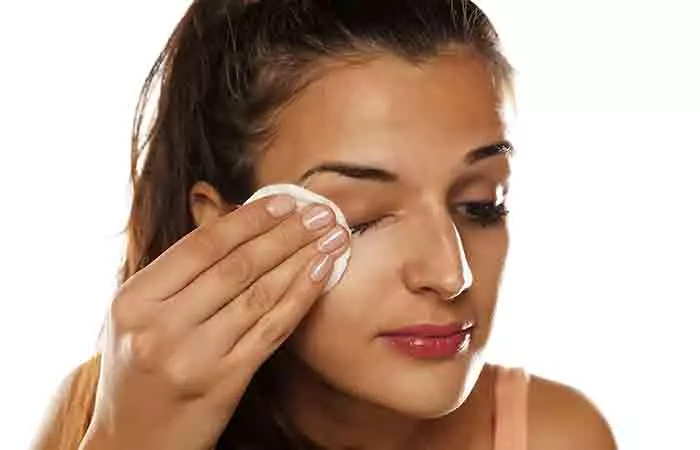
- Wash Your Face Twice
Washing your face twice a day will keep it clean and prevent breakouts. It is essential not to overwash your face as this will lead to dryness and damage the skin’s moisture barrier. If you have oily skin, do not wash your face more than three times a day.
- Remove Your Makeup
Never forget to remove your makeup before you go to bed. Always double cleanse to ensure no traces of makeup are left on the skin as the residue can clog your pores and does not give your skin a chance to breathe. This can lead to breakouts and skin aggravation.
- Moisturize Your Skin
Regardless of your skin type, moisturizing must be an essential part of your skincare routine.
- Avoid Taking Hot Showers
Hot showers open up the skin pores, which leads to moisture loss. To prevent this, try using cool/warm water to shower and wash your face.
- Stay Hydrated
Staying hydrated will give your skin the moisture it needs to stay healthy. If you are dehydrated, no amount of moisturizer can help revive your skin.
- Maintain A Balanced Diet
Eat foods rich in vitamins and antioxidants, like fruits, vegetables, and nuts, to nourish your skin from within.
- Get 8 Hours Of Sleep
Sleep helps keep the cells in your body healthy. The lack of sleep can take a toll on the cell turnover process, leading to skin damage.
- Don’t Forget The Sunscreen
The sun is the biggest damaging factor when it comes to your skin. Hence, always use sunscreen or an SPF moisturizer with a minimum sun protection factor of 30.
- Visit A Dermatologist Regularly
Go for routine dermatologist check-ups as it can help detect skin issues early and keep your skin in good health.
Start your skincare journey with the perfect routine for all skin types. Check out the video to learn how to cleanse, moisturize, and protect your skin for a healthy, glowing complexion.
Putting together a skin care regimen might be difficult. In this article, we have carefully laid out the guidelines for daily skin care routines and provided steps for skin care based on your skin type. Keep in mind that the way products perform depends on your skin type. Even while using a natural product, choosing the wrong one might cause pimples, blemishes, and redness. Therefore, it is crucial to figure out your skin type and tailor your skin care routine accordingly. You can also keep track of product ingredients to check if they are causing skin irritations.
Infographic: Skin Care Secrets For Healthy-Looking Skin
We all want to have beautiful, youthful-looking skin, but it is sometimes easier said than done. Many factors contribute to the health of your skin, and you must consider each one if you want your skin to appear its best. The tips are easy to follow and worth the time and effort. Remember that taking care of your skin is important for maintaining a healthy and youthful appearance. These skin care tips in the infographic below will set you on the right track. Check it out! Illustration: StyleCraze Design Team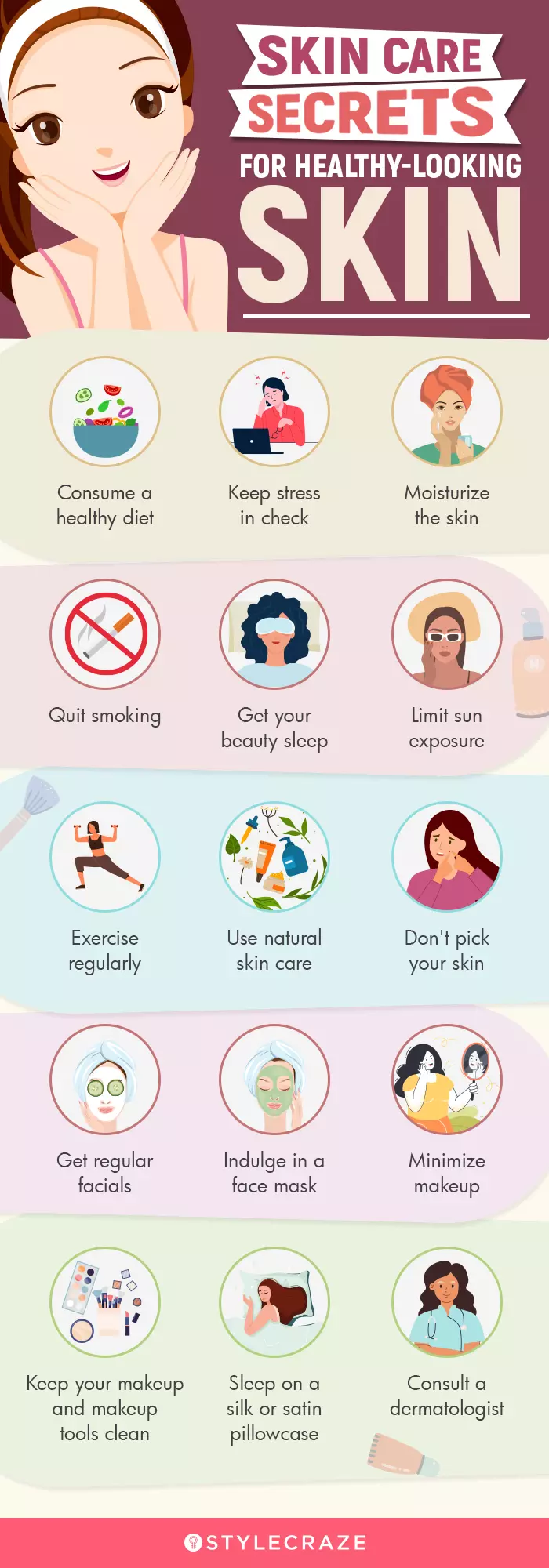
Frequently Asked Questions
What ingredients should I avoid for sensitive skin?
Avoid harsh chemicals like alcohol, fragrances, and sulfates as they can cause irritation. Further, when purchasing skin care products, consider those that are specially formulated for sensitive skin.
Is a toner necessary?
No toners are not necessary. However, toners may offer multiple benefits to help you address specific skin care issues.
How can I make my face glow naturally?
Apart from following a good skincare routine, consume healthy foods, follow a special diet plan for glowing skin, drink plenty of water, and lead an active lifestyle to make your skin glow naturally.
Is aloe vera gel a toner?
Yes, aloe vera gel can be used as a great natural toner!
Are serums necessary?
Yes, face serums contain active ingredients that may help address specific skin issues like acne, hyperpigmentationi A condition that causes dark patches or spots on the skin or nails due to excess melanin production. , and dryness.
Can I skip toner and use moisturizer?
It depends. Usually, it is best to follow the Cleanse-Tone-Moisturize routine. Toners nowadays serve multiple purposes and have specific skin benefits including sebum control, hydration, and exfoliation. You may use or skip toners depending on your skin needs.
Illustration: Daily Skin Care Routine – 5 Simple Steps For Every Skin Type
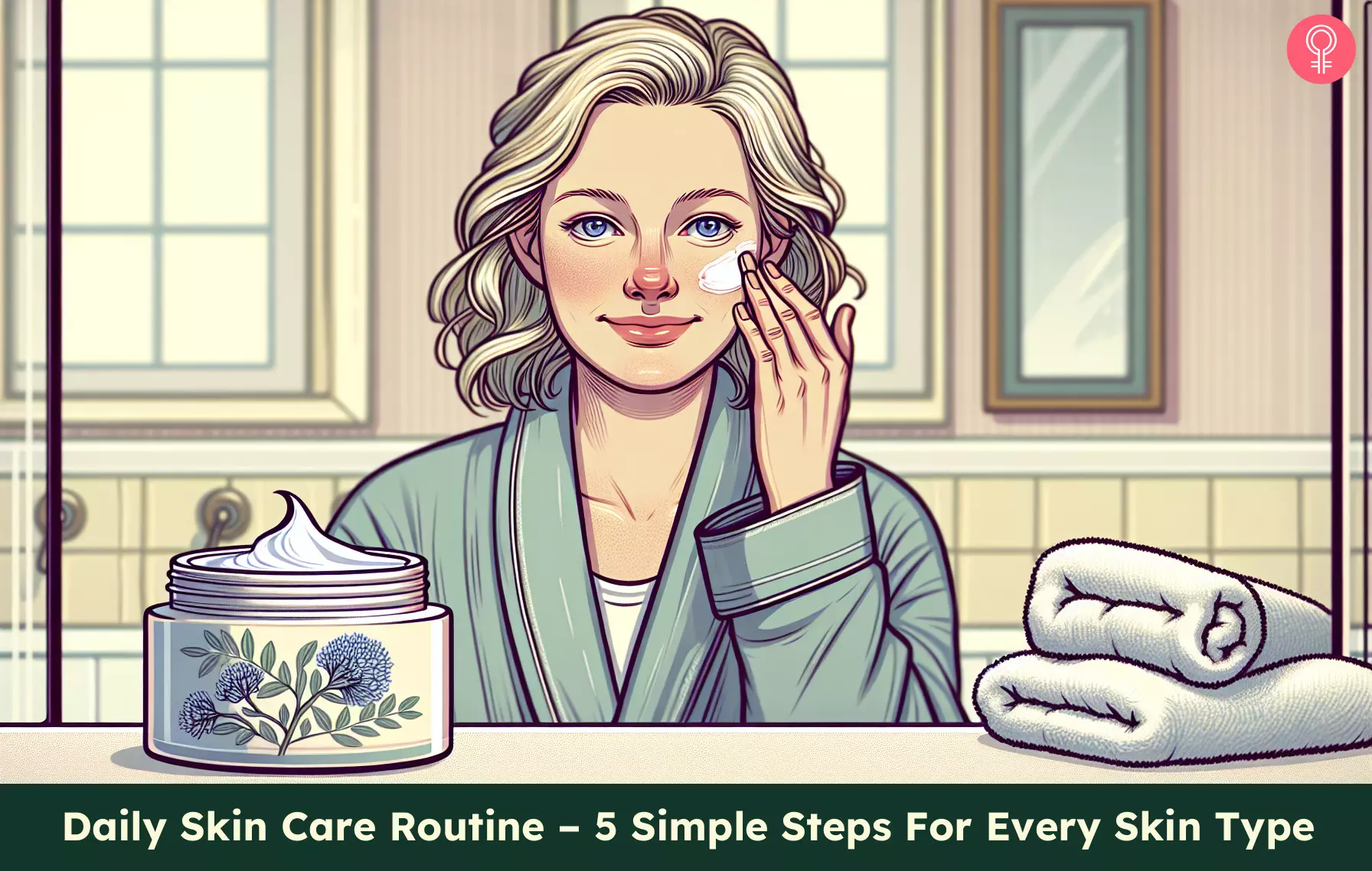
Image: Dall·E/StyleCraze Design Team
Personal Experience: Source
StyleCraze's articles are interwoven with authentic personal narratives that provide depth and resonance to our content. Below are the sources of the personal accounts referenced in this article.
i. My Morning Skincare Routine for Glowy & Smooth Skin | Sharing THE Skincare Hack for Dry Skinhttps://www.youtube.com/watch?v=ntURgYm_Oes
References
Articles on StyleCraze are backed by verified information from peer-reviewed and academic research papers, reputed organizations, research institutions, and medical associations to ensure accuracy and relevance. Read our editorial policy to learn more.
- Effects of Fermented Dairy Products on Skin: A Systematic Review. Journal of Alternative and Complementary Medicine, US National Library of Medicine, National Institutes of Health.
https://pubmed.ncbi.nlm.nih.gov/26061422/ - Aloe Vera: A Short Review, Indian Journal of Dermatology, US National Library of Medicine, National Institutes of Health,
https://www.ncbi.nlm.nih.gov/pmc/articles/PMC2763764/ - Anti-inflammatory activities of colloidal oatmeal (Avena sativa) contribute to the effectiveness of oats in the treatment of itch associated with dry, irritated skin. Journal of Drugs in Dermatology, US National Library of Medicine, National Institutes of Health.
https://pubmed.ncbi.nlm.nih.gov/25607907/
Read full bio of Dr. Madhuri Agarwal
- Josh is an aesthetic consultant with over 2 years of experience. He specializes in preventative aging and is a certified Thermage® practitioner. He helps clients deal with issues related to aging, acne, scarring, redness, dark spots, and dryness through a mix of technology and botanical actives.
 Josh is an aesthetic consultant with over 2 years of experience. He specializes in preventative aging and is a certified Thermage® practitioner. He helps clients deal with issues related to aging, acne, scarring, redness, dark spots, and dryness through a mix of technology and botanical actives.
Josh is an aesthetic consultant with over 2 years of experience. He specializes in preventative aging and is a certified Thermage® practitioner. He helps clients deal with issues related to aging, acne, scarring, redness, dark spots, and dryness through a mix of technology and botanical actives.
Read full bio of Ramona Sinha
Read full bio of Anjali Sayee
Read full bio of Shiboli Chakraborti






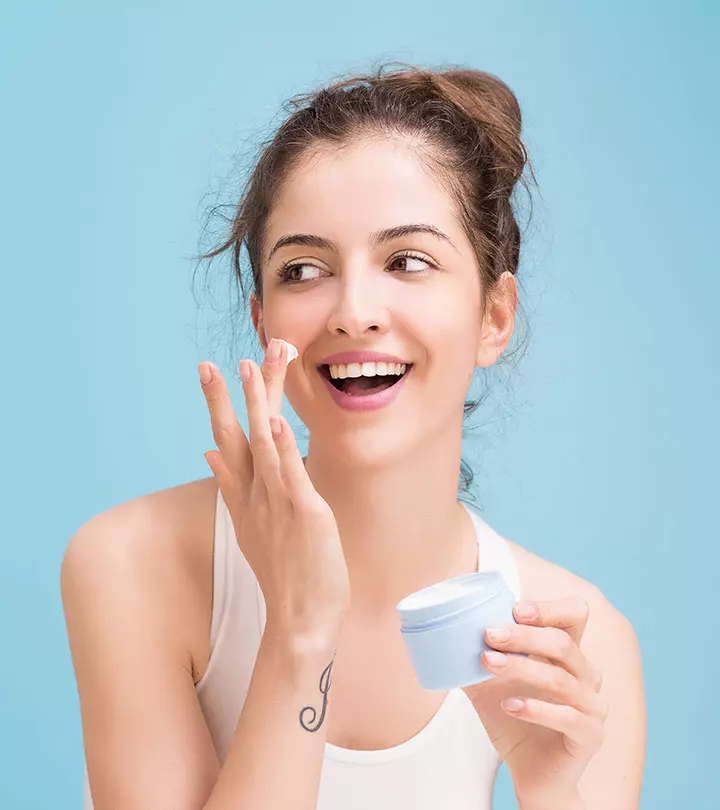





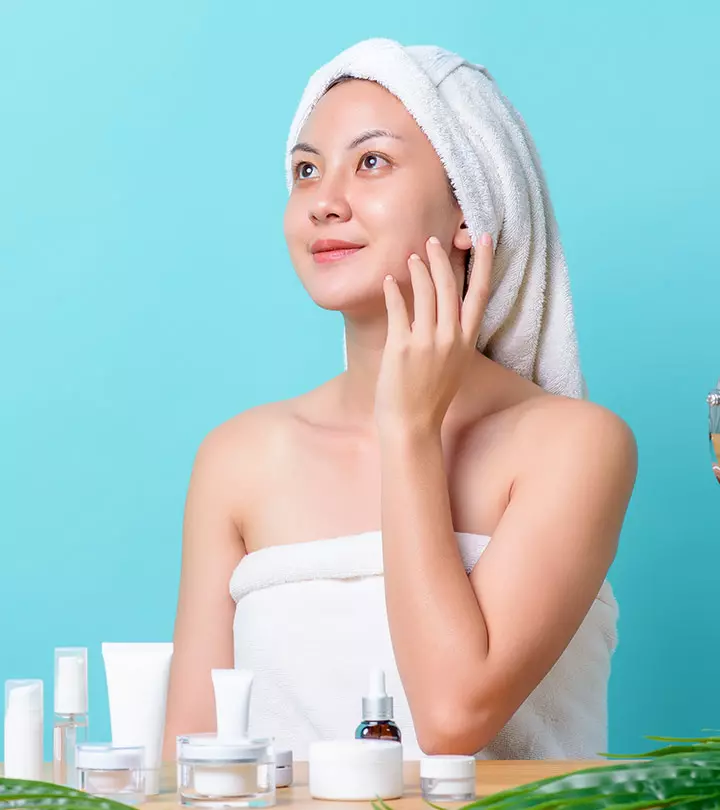


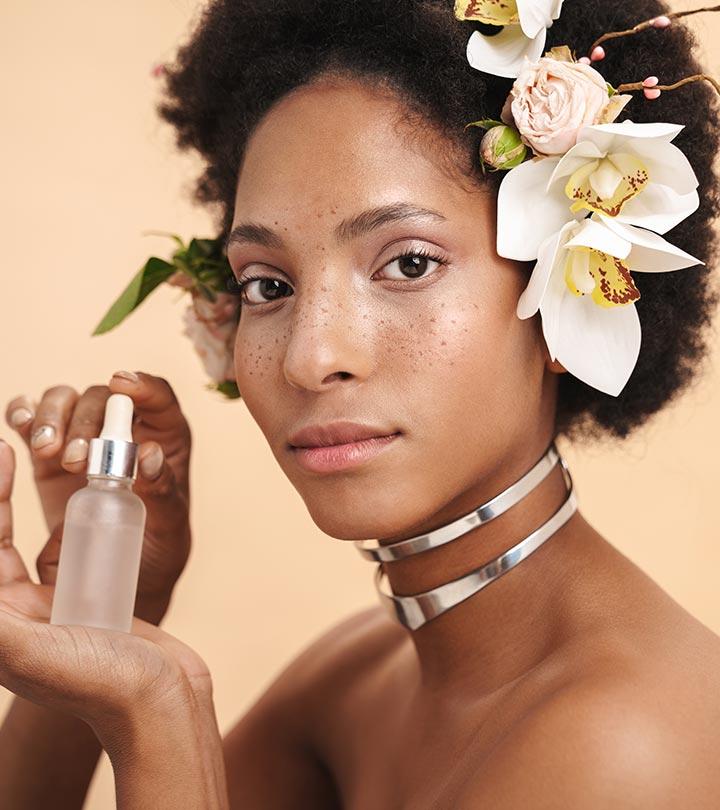
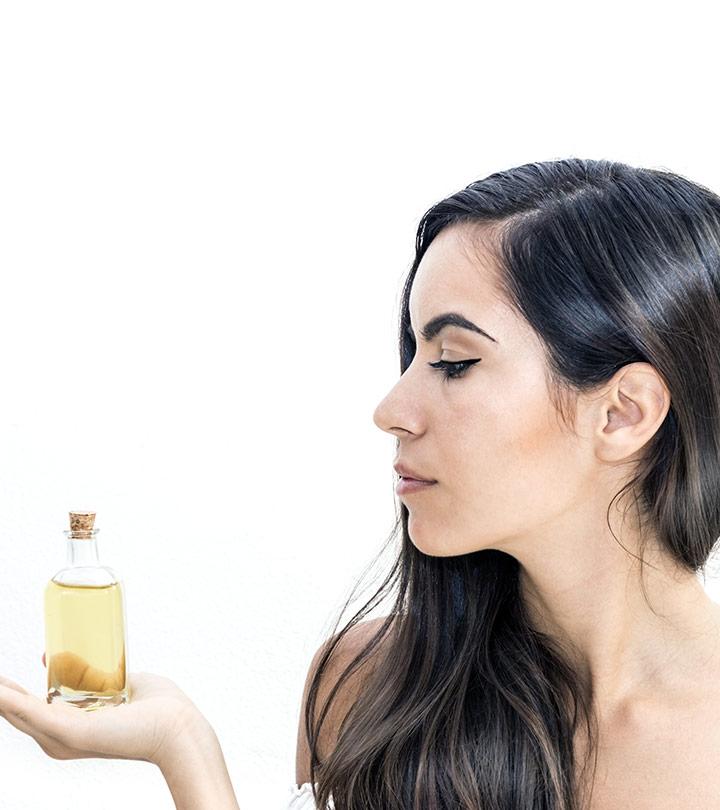




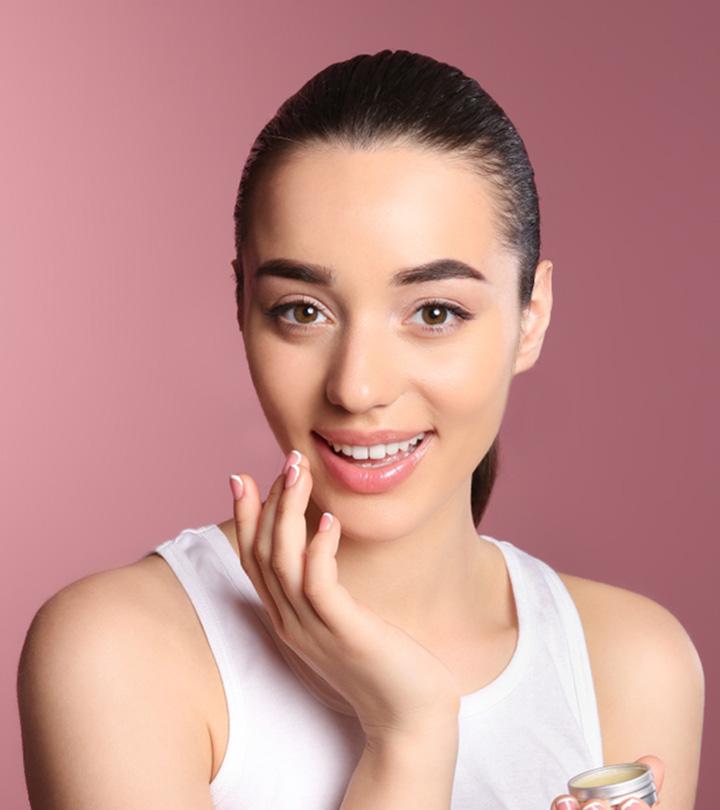




Community Experiences
Join the conversation and become a part of our empowering community! Share your stories, experiences, and insights to connect with other beauty, lifestyle, and health enthusiasts.